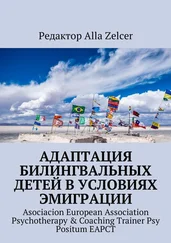James Walsh - Psychotherapy
Здесь есть возможность читать онлайн «James Walsh - Psychotherapy» — ознакомительный отрывок электронной книги совершенно бесплатно, а после прочтения отрывка купить полную версию. В некоторых случаях можно слушать аудио, скачать через торрент в формате fb2 и присутствует краткое содержание. Жанр: foreign_prose, psy_theraphy, foreign_edu, foreign_antique, на английском языке. Описание произведения, (предисловие) а так же отзывы посетителей доступны на портале библиотеки ЛибКат.
- Название:Psychotherapy
- Автор:
- Жанр:
- Год:неизвестен
- ISBN:нет данных
- Рейтинг книги:4 / 5. Голосов: 1
-
Избранное:Добавить в избранное
- Отзывы:
-
Ваша оценка:
- 80
- 1
- 2
- 3
- 4
- 5
Psychotherapy: краткое содержание, описание и аннотация
Предлагаем к чтению аннотацию, описание, краткое содержание или предисловие (зависит от того, что написал сам автор книги «Psychotherapy»). Если вы не нашли необходимую информацию о книге — напишите в комментариях, мы постараемся отыскать её.
Psychotherapy — читать онлайн ознакомительный отрывок
Ниже представлен текст книги, разбитый по страницам. Система сохранения места последней прочитанной страницы, позволяет с удобством читать онлайн бесплатно книгу «Psychotherapy», без необходимости каждый раз заново искать на чём Вы остановились. Поставьте закладку, и сможете в любой момент перейти на страницу, на которой закончили чтение.
Интервал:
Закладка:
Now we know the real meaning of the condition. Mouth breathing is possible, but it is inadequate. Insufficient respiration leads to insufficient oxidation of tissues, and to lowered vitality in all structures, and this is particularly notable in the brain, as well as in certain other higher structures. It is not because the individuals are lacking in intelligence that their mouths are open, but because the same reason that compels the open mouth also affects their intellectual activity. The blocking of nasal respiration lowers vital activity of all kinds. Hence the lowered intellectual vitality. The thick lips, which are supposed to be characteristic of a certain passionateness of nature, and which usually are associated with a lack of thorough control over animal inclinations, probably owe their significance to the fact that this special peculiarity of feature usually accompanies mouth breathing, and that the individual who labors under this deficient respiration, is likely to lack control to at least some degree. There is even a question whether the deficient oxidation is not likely to be much more notable in its effect upon the higher faculties than on the lower, and as a consequence the latter develop somewhat to the detriment of the former.
These studies in physiognomy may, indeed, be correlated in many ways with distinct physical conditions instead of as formerly with the general constitution of the individual. For instance, large protruding eyes used to be said to be characteristic of nervous, timid, sensitive individuals, easily scared, and not well able to take up the harder parts of the battle of life. Now we know that this feature is usually associated with an excess of secretion of the thyroid gland, and that the nervousness is not a matter of character so much as it is due to the disturbance of internal metabolism consequent upon this interference with the proper function of an important organ. It might well be called a slight thyroid intoxication. In large amounts it produces all the symptoms of Graves' disease.
Bodily Conditions and Stupidity.—We have many illustrations of the influence of the body on the mind, when purely physical causes work rather serious results on disposition and character and energy. A typical example was the so-called tropical anemia which existed in Porto Rico when the Americans took possession of the island. There were so many cases of it that out of about 25,000 deaths reported in 1903, nearly 6,000 were from so-called anemia. Investigation of the conditions soon revealed the real cause. It had been thought to be due to a combination of the climate, malaria and the lack of nutrition on the part of the country people. The people were absolutely without ambition, they had no energy, they seemed scarcely able to keep body and soul together, and they cared for nothing except to get just enough to supply them with a meager sustenance. Of incentive to lift themselves up, there was none. This was largely attributed by the first Americans who went to the island to the conditions which had existed under Spanish rule, as the Spaniards had not encouraged manufactures or industries in the island, and had left the people without any incentives to the awakening of enterprise or initiative.
Hook-Worm Disease .—Before long it was found that the real reason for the anemia of the Porto Ricans was the presence in their intestines in large numbers of the so-called hook-worm. These worms exhausted the vitality of the sufferers and left them without surplus energy and, indeed, with scarcely enough life to care whether or not life itself continued. It was not a moral condition, but a very definite physical cause that was at work. Shortly afterwards it was found that the same disease existed in our Southern states among the so-called "poor whites." Before this, these people had been supposed to be a characterless, unambitious, lazy people, who cared not to get on, who had sunk to about the lowest depths possible for civilized people, and who were quite satisfied to remain there. The discovery of hook-worm disease among them, however, soon made it clear that their laziness was the result of the drain upon their systems due to the presence of thousands of hook-worms. When these were removed, if nature was not already exhausted, the "poor whites" became normal human beings once more with ambition and initiative.
This story of pathology influencing racial qualities is not new in the history of the world. It is not improbable that even certain periods of decadence in Egyptian history which have ordinarily been attributed to the so-called running out of particular ruling races or families, or to the degeneration of the people consequent upon luxury, were really the result of the spread of the hook-worm disease through certain portions of Egypt. Dr. Sandwith, who has studied the disease very carefully in Egypt, is sure that it has existed there for at least four thousand years, and that the descriptions of certain affections which occurred in Egypt in historic times were really due to the same cause as now is known to produce the so-called Egyptian chlorosis, the name that was used for hook-worm disease in Egypt. Workers in soil, and in mines and in tunnels, are especially likely to be affected by it, and whenever it is neglected it spreads rather widely, as is seen in the mines of Germany and Hungary at the present time. As the cause was unrecognized in the olden time, it is possible that periods of supposed lassitude among the people were really due to infection by this parasite.
Malaria and Degeneration .—In recent years it has come to be generally recognized that the decadence of Greece, for instance, was not due to moral causes so much, perhaps, as to physical reasons. During the classic periods in Greece there are no traces of malaria. After the invasion of Sicily, the expedition against Syracuse and other attempts on the part of the cities of Greece to spread their dominion, malaria seems to have been introduced among her people, and as the anopheles mosquito was already there, the malaria spread widely, and in the course of a century affected so many of the people that their energy and ambition and initiative were to a great extent destroyed. It is well known that these effects often occur as a consequence of malaria, and as generation after generation is affected by the disease, are emphasized more and more. The relaxing effect of tropical climates, of which we have heard so much, and which is supposed after a time to bring about the inevitable production of a race eminently lazy and careless of the future, is probably much more due to certain affections, such as malaria and those consequent upon animal parasites, than to any constitutional change that has taken place in the body, or any profound corresponding change in the mind. It is a case of the body influencing the mind and producing an apparently different race from that which existed before, though all this may be changed for the better by some even slight amelioration of bodily conditions.
In any attempt, then, to influence the human mind in order to use its power and its reserve energy for therapeutic purposes, the place of the body and its influence upon the mind must always be remembered. It is quite impossible to lift people up to enable them to use their mental reserve force if they are living in discouraging physical conditions, which use up so much of energy as to make it impossible to have any to spare. Many of the phases of mental discouragement and lack of initiative which are reflected in what we call lowered resistive vitality and lack of immunity to infection, are really consequent upon physical states representing a drain upon the system that can be removed, or at least greatly improved, if they are discovered and properly treated. Victims of chronic malaria and of hook-worm disease cannot be lifted up by psychotherapy. Neither can sufferers from other forms of chronic physical debility. After the removal of the debilitating cause, however, mental influence may be brought to bear to encourage them to rise to their opportunities, to literally take on new life, and gradually accumulate reserve energy that will enable them to accomplish, not only the average work of mankind, but even better, in the reaction that comes with the new feeling of physical energy. And what is thus true in these extreme cases is even more true of minor ailments and conditions.
Читать дальшеИнтервал:
Закладка:
Похожие книги на «Psychotherapy»
Представляем Вашему вниманию похожие книги на «Psychotherapy» списком для выбора. Мы отобрали схожую по названию и смыслу литературу в надежде предоставить читателям больше вариантов отыскать новые, интересные, ещё непрочитанные произведения.
Обсуждение, отзывы о книге «Psychotherapy» и просто собственные мнения читателей. Оставьте ваши комментарии, напишите, что Вы думаете о произведении, его смысле или главных героях. Укажите что конкретно понравилось, а что нет, и почему Вы так считаете.












